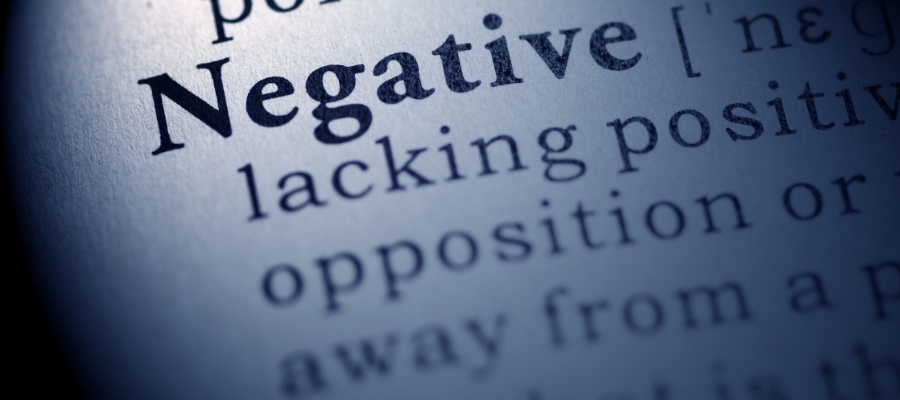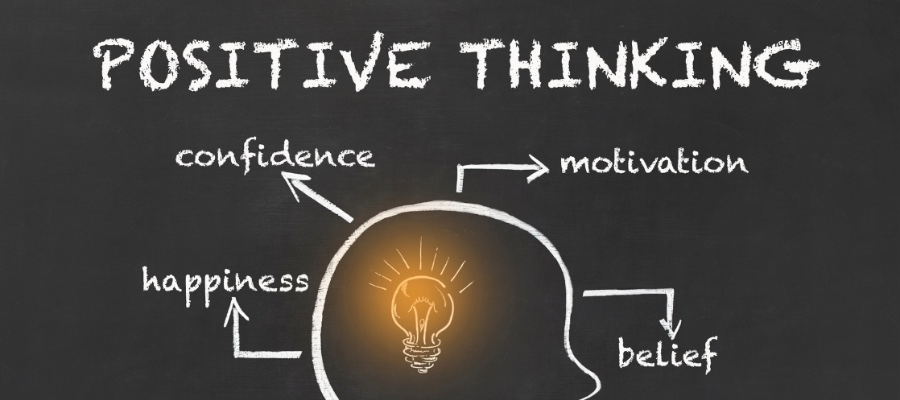The views expressed in our content reflect individual perspectives and do not represent the authoritative views of the Baha'i Faith.
“Our ancestors could make two kinds of mistakes: (1) thinking there was a tiger in the bushes when there wasn’t one, and (2) thinking there was no tiger in the bushes when there actually was one,” wrote Dr. Rick Hanson, an author and neuroscientist, in his book, “Hardwiring Happiness.”
The first mistake would result in unnecessary anxiety, whereas the second mistake would result in death. Dr. Hanson explained that humans evolved to “make the first mistake a thousand times to avoid making the second mistake even once.”
RELATED: How to Be Optimistic: 7 Ways to Be More Positive
Our brain’s preference for scanning for threatening stimuli and registering unpleasant experiences is referred to as “the negativity bias.”
Defining the Negativity Bias

“The negativity bias refers to our tendency to pay more attention and give more weight to negative rather than positive emotions, experiences, and information,” wrote positive psychologist Bridget Grenville-Cleave in her book, “Positive Psychology: A Practical Guide.”
This means that we’re more likely to “remember (and take seriously) an insult, a criticism, or a piece of negative information or feedback than a compliment or a piece of positive information or feedback.”
How the Negativity Bias Affects Our Impressions of Other People

This bias influences the judgments and impressions we form about other people. Research has found that when we are told about a stranger’s good and bad traits and behaviors, we “process and use the negative more than the positive information in arriving at a final impression of the person, even when the positive and negative information are equally intense.”
The central figures of the Baha’i Faith understood how problematic backbiting — saying negative things about another person behind their back — is. Abdu’l-Baha, one of the central figures of the Baha’i Faith, wrote:
If any soul speak ill of an absent one, the only result will clearly be this: he will dampen the zeal of the friends and tend to make them indifferent. For backbiting is divisive, it is the leading cause among the friends of a disposition to withdraw.
If any individual should speak ill of one who is absent, it is incumbent on his hearers, in a spiritual and friendly manner, to stop him, and say in effect: would this detraction serve any useful purpose?
How to Overcome the Negativity Bias in Our Relationships

Dr. Hanson explained that our brains are like “Velcro for negative experiences and Teflon for positive ones.”
That’s likely why Dr. John Gottman, a world-renowned psychologist and couples therapist, said that “if you do something negative to hurt your partner’s feelings, you know that you have to make up for it with five positive things.”
He and Robert Levenson conducted longitudinal studies of married couples in the 1970s. They predicted which marriages would last and which would end in divorce with over 90% accuracy, based on this ratio of positive to negative interactions. Happy couples had a ratio of five positive interactions for every negative interaction. Unhappy couples had a ratio of one to one or less.
The Baha’i writings offer the following guidance to make our relationships happier and more positive. Abdu’l-Baha asked us:
To be silent concerning the faults of others, to pray for them, and to help them, through kindness, to correct their faults. To look always at the good and not at the bad.
If a man has ten good qualities and one bad one, to look at the ten and forget the one; and if a man has ten bad qualities and one good one, to look at the one and forget the ten. Never to allow ourselves to speak one unkind word about another, even though that other be our enemy.
Overcoming the Negativity Bias by Focusing on the Positive

A daily habit of looking for the good in people and focusing on the positive moments in life can help us overcome our negativity bias.
According to Dr. Hanson, “repeatedly internalizing positive experiences” makes you stronger to face life’s challenges, reminds you of what you have to be grateful for, prevents “negative experiences from slipping into your mind and sinking into your brain,” sensitizes your brain to positive stimuli, “making it like Velcro for good,” increases your resilience, and helps you recover more quickly from stressful states.
This new way of thinking, perceiving, and experiencing our world would ultimately lead to more love, contentment, peace, and happiness. As Abdu’l-Baha said at a talk in Paris in 1911:
I charge you all that each one of you concentrate all the thoughts of your heart on love and unity. When a thought of war comes, oppose it by a stronger thought of peace. A thought of hatred must be destroyed by a more powerful thought of love. Thoughts of war bring destruction to all harmony, well-being, restfulness and content.
Thoughts of love are constructive of brotherhood, peace, friendship, and happiness.
















Comments
Sign in or create an account
Continue with Googleor